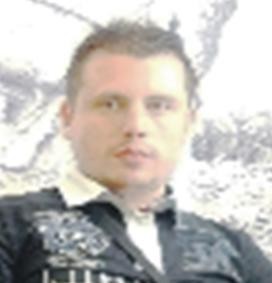The History of Armenian Philosophy. Dialogue between Tudor Petcu and Arshak Balayan
 ROMÂNIA ÎN ANUL MARII UNIRI – C[entum]
ROMÂNIA ÎN ANUL MARII UNIRI – C[entum]
Revista Luceafărul (Bt), Anul – X
Primit pentru publicare: 16 Iun. 2018
Autor: Tudor PETCU
Publicat: 17 Iun. 2018
Editor: Ion ISTRATE
The History of Armenian Philosophy. Dialogue between Tudor Petcu and Arshak Balayan
and how should we understand it. Asking you that, I wish in fact to find out
which are the main characteristics of the Armenian philosophical identity.
Can we talk about a some kind of unicity of the Armenian philosophy among
the European philosophies?
We know very little about pre-Christian Armenian culture and philosophy. We know that we had a very diverse and rich culture. We know, for instance, that Armenian Artashesian king Artavazd (1st centure BC) was a poet, philosopher, theater script-writer and boxer.
Pre-Christian culture and philosophy in Armenia was influenced by the Greeks and Persians. But Armenian mythology, and supposedly the culture, were distinct both from that of Greeks and Persians. First Christians demolished all pagan temples, they forbade all forms of pagan religion and religious practices. Since adoption of Christianity as a state religion in 301 A.D. (Kind Trdat accepted Christianity in this year and started to persecute all non-Christians) history of Armenia was written by Christian thinkers who considered pre-Christian history either unworthy of mention or simply interpreted it through Christian prism. Thus, pre-Christian Armenian culture (say from 8th century BC to 4th century AD), I believe are still to be rediscovered. During the past 17 centuries, Armenian intellectuals were influenced by Christian ideas. In fact, the church heavily controlled all forms of
intellectual life. Churches were the only institutions where the young to educated. In addition, the church had considerable political power to fight both sects and other religions (e.g. Zoroastrianism, Islam, as well as Catholicism and Protestantism in later centuries). Many intellectuals have spent a considerable amount of time on arguing against all misinterpretations of Christian traditions (interpretations diverging from the ‘official’ Armenian Apostolic Church doctrine) and on preaching the correct interpretation, but on on furthering theological thought.
I would describe Armenian philosophy as much more practical and less abstract than in ancient Greece of medieval Europe. Armenian thinkers have indeed discussed issues of God’s existence, God’s attributes, the mode of existence of universals, issues of theodicy, political order, social justice etc. However, they seldom discussed abstract entities such as causation as such, or eternity as such etc.
From 18th-19th century onward, I think, bigger diversity emerged within Armenian thinkers. Ideas of Enlighteners and later of Marxists penetrated into Armenian cultural world. Today we have even bigger diversity. People work on analytic philosophy, phenomenology, Eastern philosophy, Philosophy (history and present state) in Russia, etc.
I personally, am not convinced that, strictly speaking, ‘national philosophy’ is possible. As far as something is philosophy it is
universal, like mathematics or chemistry. I wouldn’t be surprised if there is some unity that stays unnoticed for me.
2.) We know very well that the XX-th century has known a lot of
philosophical theories based on the elimination of metaphisycs. What
can you say about the situation of the Armenian metaphysics in a
century when philosophy of science was evolving on and on?
A number of philosophers whom we consider of „older generation” worked on metaphysical issues that are also related to philosophy of science. Mamikon Asatryan (he wrote on laws of nature, for instance). During the 20th century Armenian philosophy was heavily influenced by Marxism, both before the formation of Soviet Union, during Soviet era, and afterwards. We clearly did not have a radical unti-metaphysical thinkers.
3.) Everyone has heard about the Armenian genocide, known as the first
genocide in the XX-th century. Is there any philosophical perspective
on the Armenian genocide?
A number of philosophers, some of Armenian descent, have written on Armenian genocide. I cannot identify a philosophical perspective that is distinctly on Armenian genocide. Armenian philosophers who have written on Armenian genocide are Paul Boghossian, Armen Marsoobian and others.
4.) Which are the main western philosophical approaches and traditions
which influenced mostly the Armenian philosophy in the XX-th century?
As mentioned above, Marxism (Hegel, Marx), critical theory, to a lesser degree phenomenology. Hermeneutics (Gadamer, Dilthey etc.) and Existentialism (Sartre, Nietzsche etc.) are also studied. For philosophy of science positivists and post-positivists (Kuhn, Popper, Feyerabend) are widely discussed.
5.) One of main philosophical interestes has always concerned
especially the phenomenology expressed and developped by Edmund
Husseral who has been trying to highlight the importance of accepting
the other as a way to discover yourself. What should we know about the
Armenian phenomenology of the XX-th century?
I believe, Husserl’s work could and should be better studied by philosophers in Armenia. I cannot think of any Armenian philosopher who has written a book length essay on Husserl, but most philosophers who write on ethics and/or social philosophy are well informed of phenomenological tradition. Unfortunately, I cannot provide any specificity of „Armenian Phenomenology”.
6.) Is it correct to speak about an Armenian philosophical
postmodernism in our days? If so, please describe it in some words.
Unfortunately (somewhat joking 🙂 ), yes, we can. Works of Leotard, Derrida, Deluse, Bard etc. are translated into Russian and are widely read in Armenia. Again, people do not usually write on these people or try to develop postmodernism as such. Instead most scholars in Armenia aim to get a grasp of their intellectual tools and address current issues in Armenia with this. In this respect, one could say, we stick to our tradition.
- On Orthodoxy and Philosophy. Dialogue between Tudor Petcu and Richard Otte
- The Unicity of the Orthodox Spirituality
- The Rwanda Genocide: a forgotten chapter of recent history. Dialogue between Tudor Petcu and Guy Orgambide
- The meaning of Romania and Romanian Orthodoxy for an American philosopher convert to Orthodoxy. An interview with Rico Vitz by Tudor Petcu
- The Road of a Pole to Orthodoxy. Interview of Tudor Petcu with Mateusz Blicharz
Drept de autor © 2009-2026 Revista Luceafărul. Toate drepturile rezervate.
Revista Luceafărul foloseşte cu mândrie platforma de publicare Wordpress.
Server virtual Romania
